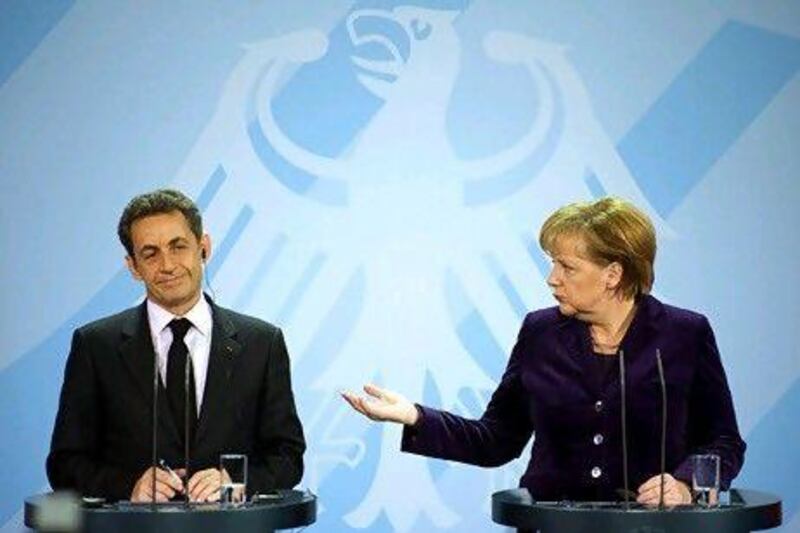George Soros, the billionaire investor and chairman of Soros Fund Management, says the euro-zone debt crisis is "more dangerous" than the global downturn of 2008.
Tomorrow's exclusives tonight:
Industry Insights e-newsletter Stay ahead of the pack and get the pick of the premium Business content straight to your inbox. Sign up
His comments yesterday came as the leaders of the bloc's two biggest economies met to try to calm the turmoil now entering a third year. Mr Soros said the euro zone faced a period of "draconian austerity" as a result of cost-cutting measures.
"We have a more dangerous situation now than in 2008," Mr Soros was quoted as saying in Bangalore, India. "The crisis in Europe is more serious than the crash of 2008."
Any collapse of European banks would have global consequences, said Mr Soros, who earned global attention after netting US$1 billion (Dh3.67bn) for his hedge fund by betting against the British pound in 1992.
He was speaking ahead of talks in Berlin between Angela Merkel, the German chancellor, and Nicolas Sarkozy, the French president, to move ahead with agreeing on stricter budget rules for euro-zone countries.
Mrs Merkel said she was optimistic that Europe could sign off on budget cuts by the end of this month.
"It is pleasing that the negotiations on the fiscal pact are coming along well. There is a good chance we will have signed off debt brakes and everything that entails already in January and by March at the latest," she said in a news conference after the meeting.
The leaders used their first meeting of the year to map out rules for budgetary discipline negotiated at a summit on December 9.
"They are trying to set the agenda and make sure other countries fall in behind them ahead of the next European summit on January 30," said Tim Fox, the chief economist at Emirates NBD.
The two leaders also said they were considering accelerating capital contributions to a bailout fund being set up to stem the debt crisis. They also used the meeting to repeat their endorsement of a financial transactions tax.
But progress is in danger of being overshadowed by concerns Greece may default on its debts. The IMF is losing confidence in Greece's ability to clean up its public finances and clear its debts, the German magazine Der Spiegel reported on Saturday, citing an internal IMF memo.
Mrs Merkel and Christine Lagarde, the IMF chief, are due to meet today in Berlin for an "informal exchange", it emerged yesterday.
Mrs Merkel said yesterday that Greece's struggle to contain its debt was a "special case" within Europe, although a voluntary debt restructuring being negotiated with banks would help the country.
"Our intention is that no country must leave the euro area," she said.
European stocks initially lifted as news emerged from the meeting before fluctuating later. The Stoxx Europe 600 inched up 0.01 per cent to 247.66 during afternoon trading in Europe yesterday. The euro gained 0.2 per cent against the US dollar to trade at US$1.2750.
* With Dow Jones and Bloomberg News
twitter: Follow our breaking business news and retweet to your followers. Follow us





